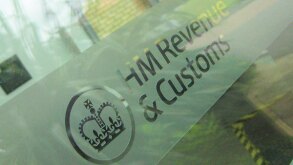Revenue Memorandum Circular (RMC) 65-2015 was issued on October 7 2015, circularising the full text of the ‘Protocol Amending the Agreement between the Republic of the Philippines and the Government of the French Republic for the Avoidance of Double Taxation and the Prevention of Fiscal Evasion with Respect to Taxes on Income’ and RMC 15-2016 on February 15 2016, circularising the “Entry into Force, Effectivity and Applicability of the Renegotiated Philippine-Germany Tax Treaty”.
The agreements introduced a new Article 26 (for the French Republic) and a new Article 27 (for Germany) of the respective conventions for the avoidance of double taxation. The change was introduced to adhere to the internationally agreed standards on tax transparency and exchange of information.
With the entry into force of the respective protocols, Article 26 (for the French Republic) and Article 27 (for Germany) were revised, which – though containing provisions similar to the original article – expanded the obligations of the parties on exchange of information. The new articles provide that the obligation to exchange information is not limited by Article 1 of the convention regarding the persons covered by the convention, and neither is it limited by Article 2, regarding the type of taxes covered by the convention. Thus, the information, which may be exchanged between the state parties, is not limited to information concerning residents of either or both state parties, and neither is such information limited to those involving income or other similar taxes. However, the use of the information should only be for purposes of assessment or collection of taxes, enforcement or prosecution in respect of taxes, the determination of appeals in relation to taxes, or the oversight thereof. And, though still treated as secret, the information exchanged may be disclosed in public court proceedings or in judicial decisions. The state parties are also required to take necessary measures to ensure availability of the information and the ability of competent authorities to access such information and to transmit it to the other state party.
The protocol requires a state to use its information-gathering measures to obtain information requested by the other state, even if the requested state does not need the information for its own tax purposes. A state cannot decline to supply information solely because it has no interest in such information. A state is also prohibited from declining to supply information because of the reason that the information is held by a bank, other financial institution, nominee or person acting in an agency or fiduciary capacity, or because the information related to ownership interests in a person. It must be pointed out that this is in line with the Philippines’ own domestic laws since, under Republic Act 10021, the local tax authorities can request for information and records from banks and financial institutions, when requested by the tax authority of a country which has a tax treaty with the Philippines, or which is a party to a convention wherein the Philippines is also a member.
Irwin C Nidea Jr.
BDB Law, member of WTS Global for the Philippines
+63 2 403 2001 ext 330









